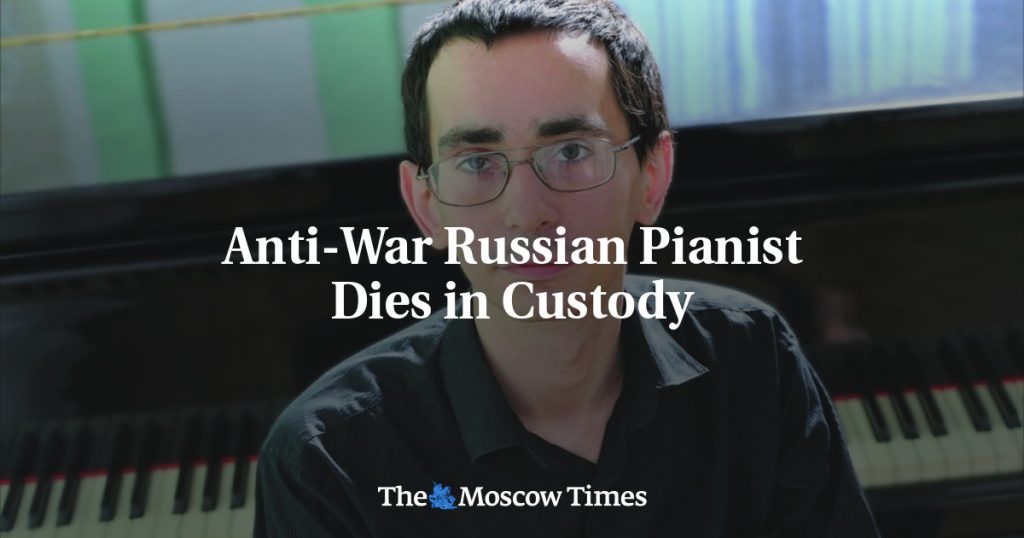Summarize this content to 2000 words in 6 paragraphs
Russian concert pianist and anti-war activist Pavel Kushnir died in police custody after going on hunger strike, his mother confirmed Monday.
Friends and activists said last week that Kushnir died at age 39 in a pre-trial detention center in the Jewish autonomous district, a remote region of Russia’s Far East.
Federal Security Service (FSB) agents arrested Kushnir in May on charges of calling for terrorist activities in YouTube videos where he spoke out against the invasion of Ukraine.
The independent news website Mediazona reported Monday that it was able to verify Kushnir’s death with his mother, Irina Levina.
“I was informed by the FSB investigator in [the regional capital] Birobidzhan. [My son died on] July 28 of this year. From a hunger strike,” Levina, 79, was quoted as saying.
“They say they helped. They say there were IVs and they tried to support him somehow, but apparently it wasn’t enough,” she added.
❗ Пианист Павел Кушнир умер в СИЗО Биробиджанa после голодовки, сообщает «Вот Так» со ссылкой на правозащитницу Ольгу Романову и подругу Кушнира, пианистку Ольгу Шкрыгунову.39-летний пианист умер 27 июля. Он объявил голодовку в изоляторе и в последние дни отказался от воды.… pic.twitter.com/Q8TuzjJwDU— Важные истории (@istories_media) August 2, 2024
Mediazona said other details and the official cause of Kushnir’s death remain unknown.
Kushnir was a graduate of the Moscow Tchaikovsky Conservatory and a soloist in several regional philharmonic orchestras. He was a soloist with the Birobidzhan Regional Philharmonic before his arrest there.
Levina told Mediazona that her son’s body was expected to be repatriated “soon” to his native Tambov region.
Vot Tak, a Russian-language affiliate of the Poland-based broadcaster Belsat which first reported his death, said Kushnir’s YouTube channel had five subscribers at the time of his arrest.
Independent Novosibirsk councilwoman Svetlana Kaverzina said Sunday that the public did not learn about Kushnir’s arrest or hunger strike until his death.
“Birobidzhan is a city where there are no connections between dissidents. There was no one to tell. Apparently, the relatives were afraid to go public and the man was left alone with the system,” she wrote on Telegram.
A Message from The Moscow Times:
Dear readers,
We are facing unprecedented challenges. Russia’s Prosecutor General’s Office has designated The Moscow Times as an “undesirable” organization, criminalizing our work and putting our staff at risk of prosecution. This follows our earlier unjust labeling as a “foreign agent.”
These actions are direct attempts to silence independent journalism in Russia. The authorities claim our work “discredits the decisions of the Russian leadership.” We see things differently: we strive to provide accurate, unbiased reporting on Russia.
We, the journalists of The Moscow Times, refuse to be silenced. But to continue our work, we need your help.
Your support, no matter how small, makes a world of difference. If you can, please support us monthly starting from just $2. It’s quick to set up, and every contribution makes a significant impact.
By supporting The Moscow Times, you’re defending open, independent journalism in the face of repression. Thank you for standing with us.
Continue
Not ready to support today? Remind me later.
×
Remind me next month
Thank you! Your reminder is set.
We will send you one reminder email a month from now. For details on the personal data we collect and how it is used, please see our Privacy Policy.















